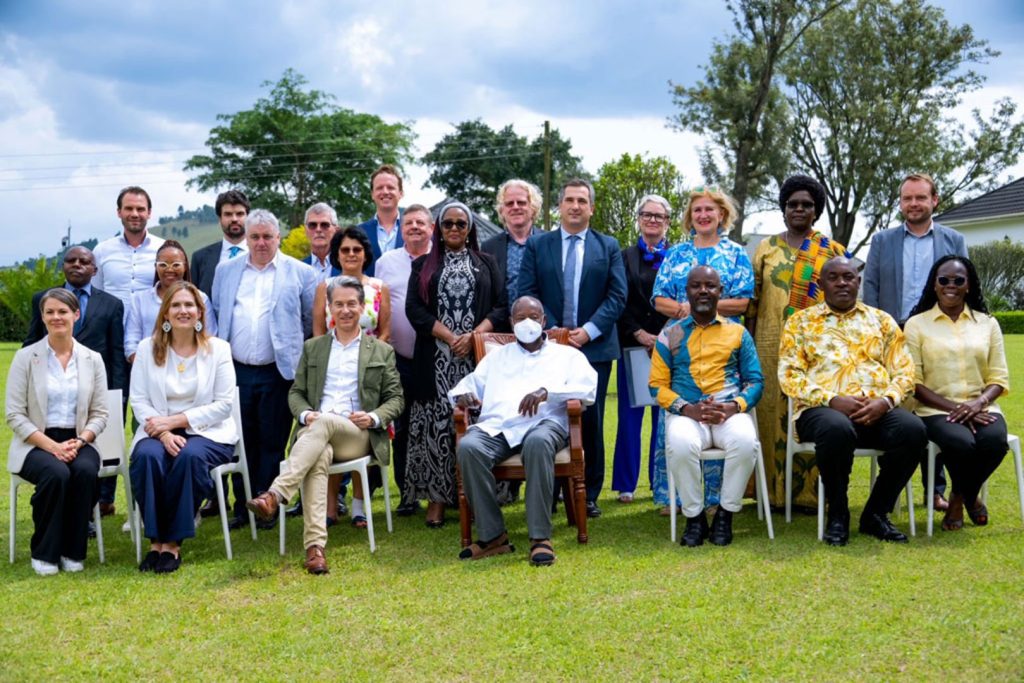Museveni Pleads With European Investors to Take Advantage of Uganda’s Growing Market

President Museveni’s call for European investors to tap into Uganda’s growing market, particularly in agriculture, aquaculture, and environmental sustainability, is yet another example of a government that appears more interested in attracting foreign investment than in fostering genuine domestic development. Speaking from his home in Irenga, Ntungamo District, the President voiced concerns about the decline in European investment in Africa, but his remarks reveal a concerning pattern of relying on external sources rather than building Uganda’s own economic foundation.
“What happened to our relatives, the Europeans? Why don’t they come and invest?” he asked, seemingly ignoring the deeper issues at play, such as the global economic climate and the persistent challenges Uganda faces in its governance and investment policies. The focus on foreign investment as the main driver of economic growth reflects an attitude that is more aligned with dependency than independence, as the government continues to seek solutions from outside instead of fostering homegrown businesses and empowering local entrepreneurs.
While the President acknowledged existing European ventures—such as liquid coffee production, avocado exports, and medical waste management—his promise of government support to boost these investments signals a reluctance to build sustainable, locally-owned industries. It is troubling to see a government more eager to maintain foreign reliance than invest in long-term, locally-driven growth that could help Uganda thrive independently.
Moreover, Museveni’s proposed plan to relocate farmers for sustainable fish farming and his criticism of swamp rice cultivation for harming the Nile River’s tributaries show a top-down approach that ignores the real needs of Uganda’s people. The focus on foreign-backed ventures and global environmental policies rather than grassroots, locally-rooted solutions further exemplifies the government’s detachment from the true needs of Ugandans.
This is another stark reminder of a non-patriotic government that is not committed to developing and owning Uganda’s future. Instead of creating policies that empower Ugandans to take control of their own economic destiny, the government continues to chase foreign investment without addressing critical domestic challenges such as corruption, economic inequality, and inefficient governance.
European investors, while welcoming the prospect of deeper economic ties, are understandably cautious. Mr. Nico Van Vliet, representing the Uganda Flowers Exporters Association, said, “We see great potential for growth, not only in the European Union but also in regional markets like Kenya and Ethiopia. We are committed to contributing more to Uganda’s economy.” But this commitment may ultimately reinforce Uganda’s role as a secondary player in global markets rather than a leading, self-sufficient economy.
Mr. Eric de Waan, from Yalelo Uganda, also expressed confidence in aquaculture, saying, “Uganda has the best conditions for fish farming, especially in Lake Victoria. We aim to invest $5 million annually to expand operations.” While such investments are valuable, they further underscore the question: will these ventures truly benefit Uganda’s citizens in the long run, or will they simply deepen the country’s reliance on foreign entities, leaving Uganda without the ability to sustain and grow its own industries?
